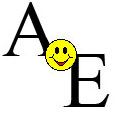At its most basic level, Silinism is the worship of Forsteri, the Great Penguin. Because of its disorganized nature and the iconoclastic nature of most of its adherents, the exact nature of Silinism varies widely between faithful, but the basic tenet of the belief in Forsteri remains. Over the years, less religiously-minded faithful have moved away from worship and turned instead to a more spiritualist and philosophical practice, which has become known as the Path of Forsteri.
The central tenet of Silinism and the Path of Forsteri is that the Universe is fluid. Strong belief can alter the Universe. This is not an unusual belief in human cultures; from the child praying for the health of a sick parent or the gambler breathing on dice to make them lucky, humans throughout history have believed that their faith can change how the Universe works. The worshippers of Forsteri believe that by strengthing their own views of reality and weakening the views of others, they can reshape the world to fit their needs and, hopefully, make the world a better place. To this end, Silinism regards confusion as a holy state. When one is firm and grounded, one's reality is concrete and limited, but in confusion comes the capacity to learn, adapt, and grow. Silinists strive to pass through confusing situations and to confuse others, thereby making reality itself less static and more open to positive changes.
Central to both Silinism and the Path is the Great Penguin, Forsteri. Some call Forsteri a god; others prefer to imagine Forsteri as a cosmic manifestation of an abstract principle (or an abstract representation of a cosmic principle, depending on who you ask). Forsteri is visualized as the Penguin because that animal is associated with high intelligence, strong communities, ability to survive difficult environments, and a highly evolved capacity to lie. Despite this anthropomorphization, however, Forsteri is rarely if ever depicted as an actual penguin, and many faithful consider it poor form to describe Forsteri as either "he" or "she."
Over the years, other deities have been found by Silinists to meet their unique spiritual needs and desires. Nearly half of all Silinists are also practicing Discordians, and small cabals of Silinists are vocal in their veneration of the Hungry Weasel God, the Big Shiny Happy Face, Bob the Subgenius, and candy.
Many gods are categorized according to their portfolio, the concepts or ideals which they embody. In polytheistic cultures, there will often be a sun god, a god of the river, a god of the harvest and so forth, while in Judaism individual angels are often associated with certain portfolios and in Catholicism saints are designated the matrons or patrons of a concept. Similarly, Forsteri is a god of Balance above all else, and is secondarily a god of creativity and chaos. Forsteri teaches that all things in the Universe depend on being in balance; a balance might be closer to one extreme than another or change from moment to moment, but in all things, the secret of understanding and contenment is proper balance. In modern society, however, most aspects of life wallow in an excess of order, breeding stagnation and inefficient bureaucracy. The Silinist response is therefore to match the excess of order with an excess of disorder, and thereby improve the lives of all. The attempt to reduce order in a good-natured and well-meaning manner is described by Silinists as "Happy Chaos."
Silinism venerates no single holy book, beliving that truth and wisdom are meant to be found in all works if one wants to look. When Silinists do speak of holy texts, they most commonly speak of the Book of Adams (The Hitchiker's Guide to the Galaxy by Douglas Adams), the Books of Gygax (any of the rules systems to the role-playing game Dungeons and Dragons), The Book (a theoretical book which exists in a Platonic perfect reality and is therefore a very good read), and the Book of Contrivance (a mythical book cited by Silinists whenever they need a source for a made up quote or proverb, which contains within it such sub-books as The Proverbs of Saint Chuck the Pragmatist, The Rationalizations of Flippicus the Liar, The Sub Book of Employment, The Sub Book of The Great Penguin, The Frequently Asked Questions of the Gods, The Sub Book of Hexodus, and The Sub Book of Regenesis).
The Path of Forsteri embodies many of the same ideals and beliefs as the Silinist church but views Forsteri as an ideal rather than a deity. The Path is discussed in greater details here (opens in new window).
Back to the Aerica main page! Back to religion page!
